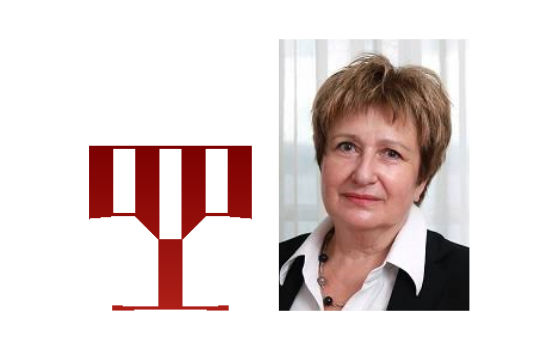Following her appointment by the Government of the Republic of Croatia at its 194th session, held on 28 November 2019, Dr Ivanka Stričević took office as the new Director General of the National and University Library in Zagreb on 1 February 2020.
Prior to becoming NSK Director General, Dr Stričević held the position of the Vice-Rector for Science and Information Infrastructure at the University of Zadar. She received her MA degree in pedagogy in 1995, at the Zagreb Faculty of Humanities and Social Sciences, where she also obtained her doctorate in information sciences in 2006. She distinguished herself at the beginning of her professional career by successfully organising and promoting public library programmes for children and the younger population. Her professional experience includes chairing two sections of the International Federation of Library Associations and Institutions (IFLA) – Libraries for Children and Young Adults Section and Literacy and Reading Section.
Dr Stričević’s four-year programme, based on which she was appointed NSK Director General, focuses on several factors affecting the Library in fulfilling its role as an institution of particular national interest, as well as on the special circumstances marking the beginning of her term in office – the adoption of the new library act, which opens up opportunities for modernising the entire national library system, and the Library’s role as the seat of Croatia’s presidency of the Council of the European Union, which apart from increasing the Library’s visibility will also open up new possibilities, but at the same time entail new responsibilities. Furthermore, Dr Stričević sees the development of the new strategic plan as an opportunity for the improvement of the Library’s internal structure, which should be flexible in operational terms on the one hand, but whose stability on the other hand should enable the Library to quickly respond to novelties. Also one of the key elements in Dr Stričević’s programme is the dual, complementary role of the Library as both a national and university library, which requires a well-thought-out implementation of its development strategy on several levels.
Taking into consideration that all large systems do not fare well and are prone to destabilisation when faced with sudden changes, especially more such changes at the same time, Dr Stričević is emphasising that all changes will be introduced gradually, either based on carefully developed plans or as part of projects, and will focus on efficiently combining the Library’s strengths with the favourable conditions outside it, and acting upon principles aimed at the development of the culture of quality and networking within the Croatian library system. Since the Library’s sphere of activity is exceptionally complex in itself, and dynamic developments in both its immediate and global environment are always to be expected, it is necessary to establish an internal system that is flexible and open to changes, but reacts to them based on clearly defined objectives, set in response to actual needs and oriented towards ensuring both sustainability and progress. Dr Stričević points out that the homogenisation of the entire Library’s staff, ranging from the top library professionals to administrative and technical staff, is an absolute priority in this context, since it is only through active participation of all the Library’s employees that it may successfully achieve its goals and maintain its high social status.
Finally, as the Library’s new Director General, Dr Stričević wishes all the Library’s employees to become more aware of what she believes many of them are already aware of, and also proud about – that working at the Croatian national library makes them a part of its history and future.

